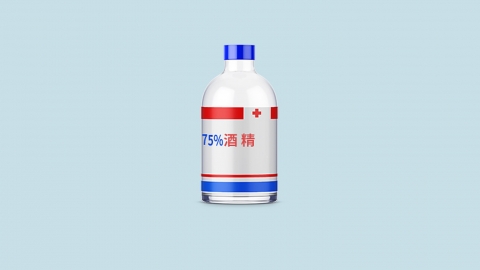Can alcohol kill the herpes virus?
Generally, whether alcohol can kill the herpes virus depends on the alcohol concentration and contact time. The detailed analysis is as follows:

If medical alcohol with a concentration of 70%-80% is used and allowed to contact the herpes virus for at least 30 seconds, it can destroy the viral protein structure, rendering the virus inactive, thereby achieving the effect of killing the virus. Alcohol at these concentrations has strong permeability and can act more effectively on the virus. This concentration range is commonly used for daily disinfection.
If the alcohol concentration is too low or too high, even with sufficient contact time, the effectiveness of killing the herpes virus will be significantly reduced. When the concentration is too low, alcohol cannot penetrate the virus's outer shell; when the concentration is too high, it can rapidly form a protein coagulation layer on the surface of the virus, preventing further penetration of alcohol and failing to completely destroy the viral structure, thus failing to achieve effective disinfection.
When using alcohol for disinfection, it is important to select the appropriate concentration to avoid compromising effectiveness due to improper concentration. Alcohol is flammable, so it should be kept away from sources of ignition and high-temperature environments during use. It should not be used for large-area spray disinfection to prevent fires. Alcohol should not be directly applied to broken skin (such as ruptured herpes blisters) to avoid irritating the wound, causing pain, or worsening discomfort. For skin disinfection, it is recommended to choose mild disinfectants.









